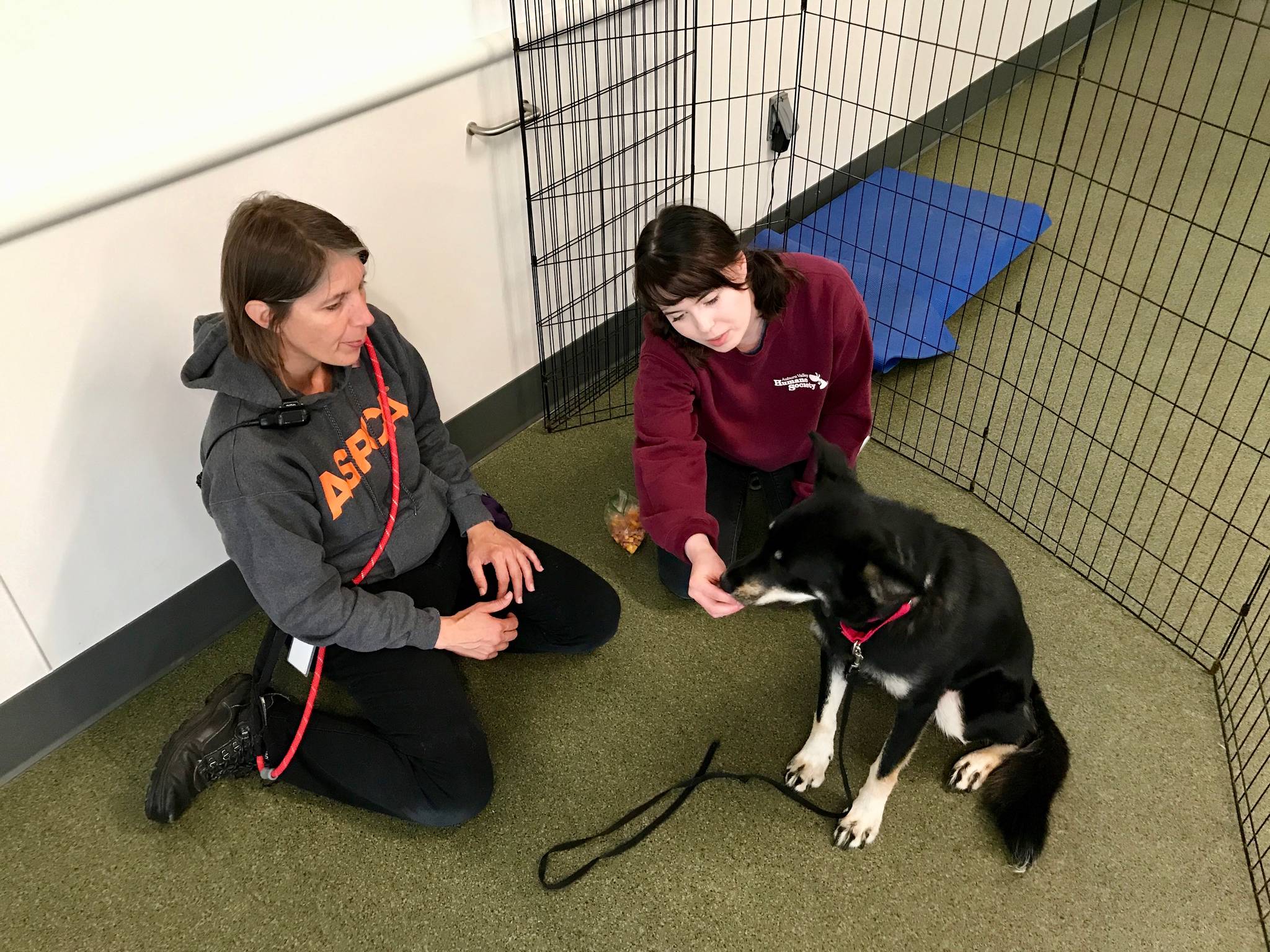The Auburn Valley Humane Society on Friday announced its participation in the ASPCA (American Society for the Prevention of Cruelty to Animals Learning Lab, a program developed to better serve behaviorally challenged homeless dogs.
The lab is an interactive educational program where select shelters participate in an intensive, hands-on workshop and discuss all aspects of advanced behavioral care in animal shelters.
The ASPCA chose the AVHS as one of eight shelters in the country to participate in the learning lab. A team of five shelter professionals from the Auburn shelter recently visited the ASPCA Behavioral Rehabilitation Center in Weaverville, N.C., where they worked alongside ASPCA behavior experts and discussed effective protocols and best practices to elevate behavioral health care programs in shelters.
The AVHS will be applying new ideas and strategies to further integrate behavioral and psychological support for homeless dogs into their entire sheltering operation.
“What an amazing opportunity for our organization to be invited to learn about this program.” said Kristina Adams, AVHS licensed veterinary technician. “We feel empowered by our experience and are looking forward to collaborating with the ASPCA Behavioral Rehabilitation Center and their team of experts in the field of behavior.”
“Auburn Valley Humane Society is an enthusiastic organization dedicated to applying best practices and innovative solutions to further enhance their behavioral health care program,” said Dr. Kat Miller, senior director of the ASPCA Learning Lab program. “We are excited to welcome them to the Learning Lab program, where they now join our network of partners that develops and shares forward-thinking practices to better prepare behaviorally-challenged animals for adoption into loving homes.”
The ASPCA Learning Lab launched in 2018 at the ASPCA Behavioral Rehabilitation Center, the first-ever permanent facility dedicated to the rehabilitation and study of extremely fearful, unadoptable homeless dogs, most of whom are victims of cruelty or neglect. As the lab program evolves, the ASPCA aims to develop a national network of partner organizations that share learnings and best practices and serve as specialized behavioral rehabilitation hubs in their communities.
The work of the Behavioral Rehabilitation Center is showcased in an award-winning ASPCA documentary, “Second Chance Dogs,” which is available on secondchancedogsfilm.com.
For more information on the ASPCA Behavioral Rehabilitation Center, please visit aspca.org/BRC.


